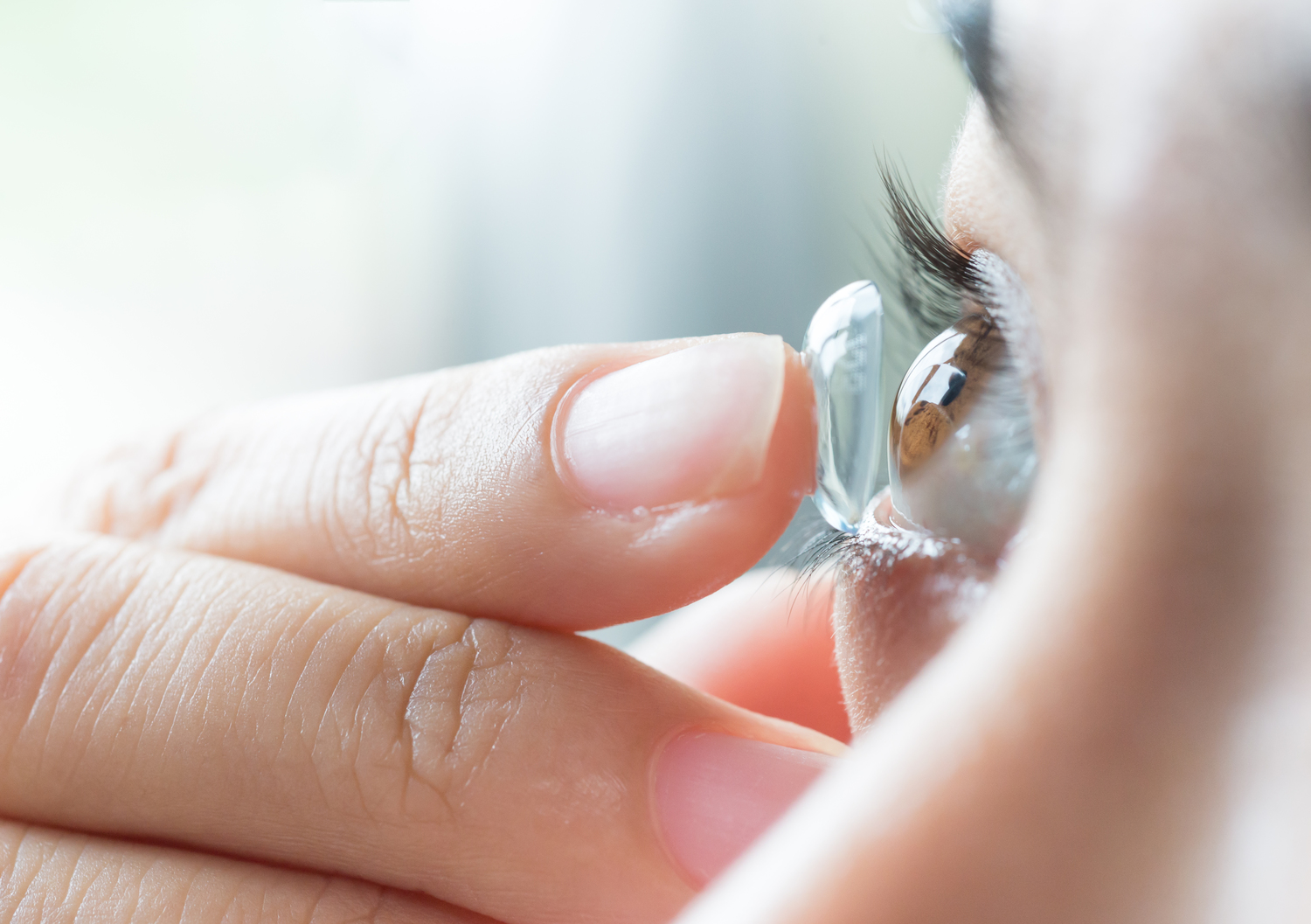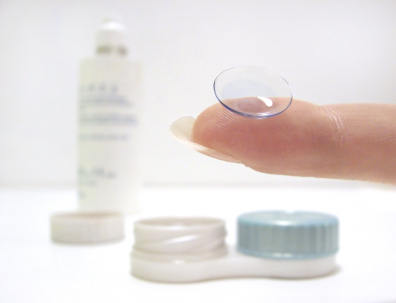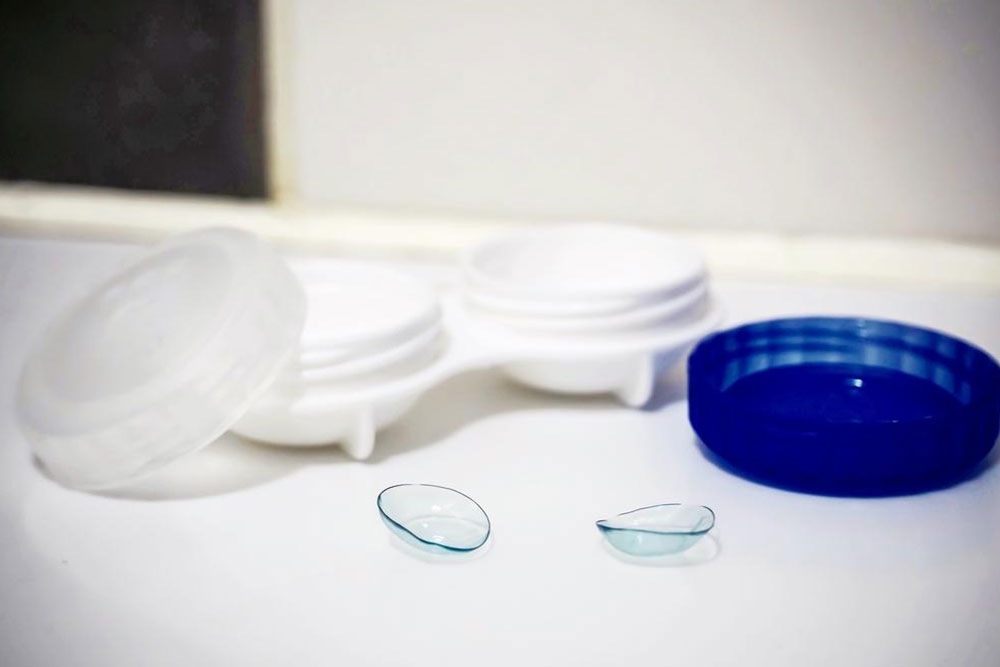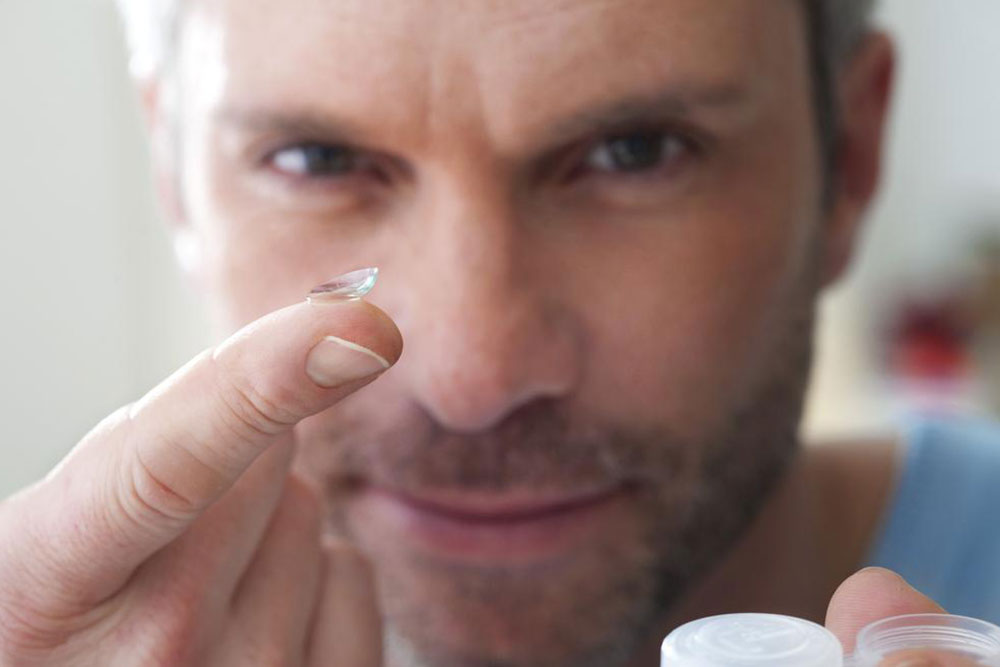Tips to Use Contact Lenses Effectively
Contact lenses can be quite useful, whether you want to change your look with colorful lenses, or use them for prescription purposes. A contact lens is a thin, curved lens placed on the eyeball. The lens itself is evidently clear; however, it often has a slight tinge of color to make them simpler to wear. Contact lenses are either hard or soft. Softer lenses are more popular than the harder ones.
Types of Contact Lenses
Soft Contact Lenses:

- They are made of soft, flexible plastic that allows oxygen to pass through to the cornea.
- They are easier to adjust and more convenient than other types of lenses such as Rigid Gas Permeable lenses.
- The latest soft lenses are made of silicone-hydrogels that pass more oxygen to the eye when the lenses are worn.
Rigid Gas Permeable (RGP) Contact Lenses:
- These lenses are more long-lasting and resistant to deposit build-up and normally deliver a clearer, crisper vision.
- They are easy to handle and less probable to tear.
- As compared to soft contact lenses, they may not be that comfortable initially and it can take more days to get used to wearing RGP lenses.
Extended Wear Contact Lenses:
- These are usually soft contact lenses. Extended Wear Contact lenses can be used continuously for one to six nights or as much as for 30 days also.
- They are made from flexible plastics that permit oxygen to pass through to the cornea.
- Duration of continuous wear depends on the lens type and an eye care expert’s evaluation of the wearer’s tolerance for overnight wear.
Disposable (Replacement Schedule) Contact Lenses
- Most of the soft contact users are suggested to use some type of frequent replacement schedule.
- With a real daily wear disposable schedule, a brand new pair of lenses is used every day.
- A few soft contact lenses are known as “disposable” by contact lens dealers; however, these lenses are for frequent/planned replacement.
How to prevent complications due to contact lenses?
Even though all contact lenses are categorized under medical equipment and are approved by the FDA, they require a prescription, whether it is prescription lenses or cosmetic contact lenses. This is because lenses may lead to complications like infection and inflammation that might lead to vision loss or blindness.
The best ways to prevent complications are as follows:
- Consult an eye doctor if thinking about using contact lenses.
- Purchase contact lenses from a valid source.
- Keep contact lenses clean with proper care.
- Follow all the instructions about the use and care of contact lenses and lens products.
- Stick to the wear and replacement timetable.




